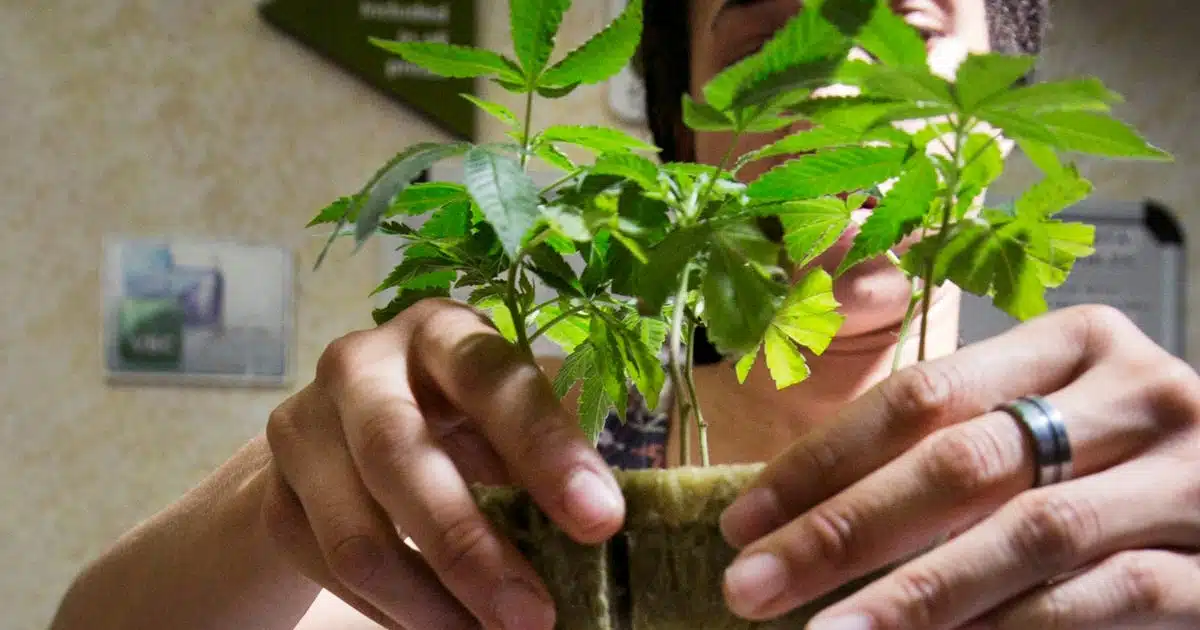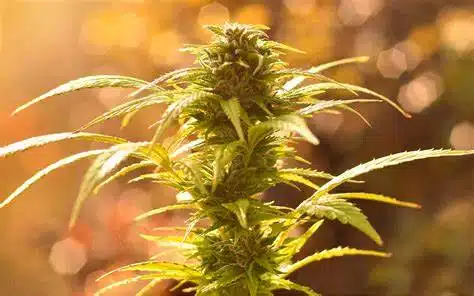Is Weed Therapy Really Beneficial?
Welcome to our blog post on the topic of weed therapy and its potential benefits. In recent years, there has been a growing interest in the therapeutic properties of cannabis. From its potential to alleviate chronic pain to its use in managing mental health conditions, marijuana has gained attention as a potential alternative therapy. In this article, we will explore different subtopics related to weed therapy and discuss their potential benefits. So, let’s dive in and explore the world of cannabis therapy!
1. Medical Benefits of Marijuana
Marijuana has been used for centuries for its medicinal properties. The plant contains various compounds, including THC and CBD, which have shown promise in treating a range of medical conditions. From pain management to reducing nausea and stimulating appetite, marijuana has been used as a natural remedy for various ailments.
2. THC vs. CBD: Understanding the Difference
THC and CBD are two of the most well-known compounds found in cannabis. THC is responsible for the psychoactive effects of marijuana, while CBD is non-intoxicating and has shown potential in treating anxiety, epilepsy, and inflammation. Understanding the difference between these compounds is crucial when considering weed therapy.
3. Different Strains for Different Needs
Not all cannabis strains are created equal. Each strain has its unique combination of cannabinoids and terpenes, which contribute to its effects and potential therapeutic benefits. Whether you’re looking for pain relief, relaxation, or an energy boost, there’s a strain out there that may suit your needs.
4. Weed Therapy for Chronic Pain Management
Chronic pain affects millions of people worldwide, and traditional pain medications may not always provide adequate relief. Weed therapy has gained attention as a potential alternative for managing chronic pain. The analgesic properties of certain cannabis strains may help alleviate pain and improve the quality of life for those suffering from chronic pain conditions.
5. Cannabis and Mental Health
Mental health conditions such as anxiety, depression, and PTSD can significantly impact a person’s well-being. While more research is needed, some studies suggest that certain cannabinoids found in marijuana may have therapeutic potential in managing these conditions. However, it’s essential to consult with a healthcare professional before considering weed therapy for mental health.
6. Weed Therapy for Cancer Patients
Cancer treatments often come with various side effects, including nausea, loss of appetite, and pain. Weed therapy, particularly the use of CBD and THC, has shown promise in alleviating these side effects and improving the overall well-being of cancer patients. However, it’s crucial to discuss cannabis use with a healthcare provider to ensure it doesn’t interfere with ongoing treatments.
7. Weed Therapy for Sleep Disorders
Sleep disorders, such as insomnia, can significantly impact one’s quality of life. Some cannabis strains are known for their sedative properties and may help individuals struggling with sleep issues. However, it’s important to note that cannabis affects sleep patterns differently for each individual, and consulting with a healthcare professional is advised.
8. Weed Therapy for Neurological Conditions
Neurological conditions like epilepsy and multiple sclerosis can be challenging to manage. Some studies suggest that certain cannabinoids found in marijuana may have anticonvulsant and neuroprotective properties, potentially offering relief to individuals with these conditions. However, further research is needed to fully understand the potential benefits and risks.
9. Weed Therapy for Inflammatory Conditions
Inflammation is a common underlying factor in various chronic conditions, such as arthritis and Crohn’s disease. Some cannabinoids found in cannabis have shown anti-inflammatory properties, which may provide relief for individuals suffering from these conditions. However, it’s important to consult with a healthcare professional before incorporating weed therapy into your treatment plan.
10. Weed Therapy and Addiction Treatment
Contrary to popular belief, marijuana may have potential in addiction treatment. Some studies suggest that certain cannabinoids found in cannabis may help reduce cravings and withdrawal symptoms associated with substance abuse. However, more research is needed to fully understand the role of weed therapy in addiction treatment.
11. Weed Therapy for Anxiety Disorders
Anxiety disorders affect millions of people worldwide, and finding effective treatments can be challenging. Some individuals have reported finding relief from symptoms of anxiety through the use of certain cannabis strains. However, it’s important to note that marijuana affects individuals differently, and consulting with a healthcare professional is advised.
12. Weed Therapy for Depression
Depression is a complex mental health condition that can have a significant impact on a person’s daily life. While marijuana is not a cure for depression, some individuals have reported experiencing temporary relief from symptoms such as low mood and loss of interest. However, it’s crucial to approach weed therapy for depression with caution and seek professional guidance.
13. Weed Therapy for PTSD
Post-traumatic stress disorder (PTSD) can be debilitating, affecting individuals who have experienced traumatic events. Some studies suggest that certain cannabinoids found in marijuana may help manage symptoms of PTSD, such as intrusive thoughts and nightmares. However, further research is needed to fully understand the potential benefits and risks.
14. Weed Therapy for Alzheimer’s Disease
Alzheimer’s disease is a progressive neurodegenerative disorder that affects memory and cognitive function. While there is no cure for Alzheimer’s, some research suggests that certain cannabinoids found in marijuana may have neuroprotective properties that could potentially slow down the progression of the disease. However, more studies are needed to confirm these findings.
15. Weed Therapy for Multiple Sclerosis
Multiple sclerosis (MS) is a chronic autoimmune disease that affects the central nervous system. Some individuals with MS have reported finding relief from symptoms such as muscle spasms and pain through the use of certain cannabis products. However, it’s important to consult with a healthcare professional before incorporating weed therapy into your MS treatment plan.
16. Weed Therapy for Arthritis
Arthritis is a common condition characterized by joint inflammation and pain. Some individuals with arthritis have reported finding relief from symptoms through the use of topical cannabis products or oral consumption. However, it’s important to note that cannabis may not work for everyone, and consulting with a healthcare professional is advised.
17. Weed Therapy for Glaucoma
Glaucoma is a group of eye conditions that can lead to optic nerve damage and vision loss. Some studies suggest that marijuana may help reduce intraocular pressure, a key risk factor for glaucoma. However, the effects are temporary, and it’s crucial to work closely with an eye care professional to manage the condition effectively.
18. Weed Therapy for Asthma
Asthma is a chronic respiratory condition characterized by inflammation and narrowing of the airways. While smoking marijuana is not recommended for individuals with asthma due to potential respiratory irritants, some research suggests that certain cannabinoids found in cannabis may have bronchodilatory properties. However, further studies are needed to fully understand the potential benefits and risks.
19. Weed Therapy for Diabetes
Diabetes is a metabolic disorder characterized by high blood sugar levels. Some studies suggest that certain cannabinoids found in marijuana may help regulate blood sugar levels and improve insulin sensitivity. However, more research is needed to fully understand the potential benefits and risks of weed therapy for diabetes.
20. Weed Therapy for Weight Management
Weight management is a complex issue that involves various factors, including diet, exercise, and overall lifestyle. While marijuana is not a magic solution for weight loss or gain, some individuals have reported appetite regulation and improved metabolism through the use of certain cannabis strains. However, it’s important to approach weed therapy for weight management with caution and consider individual circumstances.
21. Weed Therapy for Skincare
The potential benefits of cannabis extend beyond internal health. Some skincare products now incorporate cannabinoids, such as CBD, for their potential anti-inflammatory and antioxidant properties. These products may help with conditions like acne, eczema, and psoriasis. However, it’s important to choose reputable brands and consult with a dermatologist before incorporating cannabis-based skincare into your routine.
22. Weed Therapy for Hair Health
Cannabis-infused hair products have gained popularity for their potential to promote hair growth and improve scalp health. Some individuals have reported positive results in terms of reduced hair loss and increased hair thickness. However, more research is needed to fully understand the effects of cannabis on hair health.
23. Weed Therapy for Cooking Recipes
Cannabis-infused edibles have become increasingly popular, offering a unique way to incorporate marijuana into culinary creations. From brownies to gummies, there are endless possibilities for creating delicious cannabis-infused treats. However, it’s important to understand proper dosing and the potential effects before experimenting with cannabis in the kitchen.
24. Weed Therapy and Exercise
Exercise is an essential component of a healthy lifestyle, and some individuals have reported enhanced focus and motivation through the use of certain cannabis strains before physical activity. However, it’s important to find the right balance and consider individual preferences and tolerance levels when combining weed therapy with exercise.
25. Weed Therapy and Meditation
Meditation is a practice that promotes relaxation and mindfulness. Some individuals have reported enhanced focus and a deeper sense of calm through the use of certain cannabis strains before meditation sessions. However, it’s important to find the right balance and consider individual preferences when incorporating weed therapy into meditation practices.
The Use of Psychedelics in Therapy
In recent years, there has been a resurgence of interest in the therapeutic use of psychedelics such as psilocybin (found in magic mushrooms), LSD, and MDMA. These substances have shown promise in treating various mental health conditions, including depression, anxiety, and PTSD. Psychedelic-assisted therapy involves the controlled administration of these substances in a therapeutic setting, guided by trained professionals.
Psychedelics work by altering the brain’s neural pathways and promoting introspection, emotional release, and a shift in perspective. They can help individuals explore and process deep-rooted traumas, gain insights into their thoughts and behaviors, and experience a sense of interconnectedness and spiritual awakening.
Research on psychedelics in therapy has shown promising results, with many participants reporting significant improvements in their mental well-being and quality of life. However, it’s important to note that these substances should only be used under the guidance of trained professionals in a controlled and supportive environment.
Psychedelic therapy is still in its early stages, and more research is needed to fully understand its potential benefits, risks, and long-term effects. It’s crucial to approach psychedelic therapy with caution and ensure that it is conducted in a legal and ethical manner.
Additionally, the use of MDMA in therapy, specifically in the treatment of PTSD, has shown promising results. MDMA-assisted therapy, when conducted in a controlled and supportive environment, has the potential to help individuals process traumatic experiences and improve their overall well-being. However, further research is needed to fully understand the benefits, risks, and long-term effects of MDMA-assisted therapy. Research on MDMA-assisted therapy has shown promising results, with many participants experiencing significant reductions in PTSD symptoms and improvements in overall well-being. The therapy typically involves a series of sessions, including preparation, MDMA-assisted sessions, and integration sessions to help individuals integrate their experiences into their daily lives.
If you’re interested in exploring weed therapy or MDMA-assisted therapy further, consider reaching out to reputable healthcare professionals and organizations that specialize in these areas. Remember, always prioritize your health and well-being, and make informed decisions when considering any form of therapy. It’s important to note that MDMA-assisted therapy should only be conducted under the guidance of trained professionals in a controlled and supportive setting. The therapy is still in its early stages, and more research is needed to fully understand its potential benefits, risks, and long-term effects.
Conclusion
In conclusion, weed therapy holds promise as a potential alternative treatment for various medical conditions. From chronic pain management to mental health and beyond, cannabis has shown potential in providing relief and improving the quality of life for many individuals. However, it’s crucial to approach weed therapy with caution, consulting with healthcare professionals, and considering individual circumstances. If you’re interested in exploring weed therapy further, consider reaching out to reputable online dispensaries like West Coast Releaf Online Dispensary, where you can find a wide range of cannabis products to suit your needs.
Remember, always prioritize your health and well-being, and make informed decisions when considering any form of therapy. If you are interested in buying weed online and THC products, check out West Coast Releaf online weed dispensary and shop for your weed online and cannabis products at westcoastreleaf.co!













